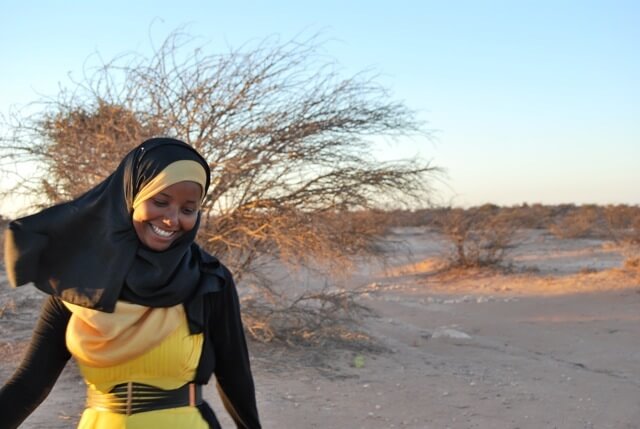Before I had children, I was very confident in my ability to pass on my language, culture and heritage. In fact, I was not worried at all – despite the fact that I have lived in the UK since I was six years old, and despite the fact that I considered my husband as someone who already struggled with Somali (Djiboutian- Canadian). Still, I was confident and comfortable that my children would learn Somali from me, speak fluently like me and have a strong Somali identity, even if they are born in London.
Now I have two Westminster born children who speak only English and constantly look at me blankly or ask “what do you mean mummy” when I speak in Somali. Recently my nearly four-year-old says made-up sounds when he attempts to speak Somali – the language is so strange to him, never mind it making any sense, he thinks it is a joke and unsuccessfully mimics the sounds much like the racist bullies in my early childhood!
I fluctuate between the utter embarrassment of my failure to pass on more than a few commands (all of them frequently used around the house) and worry about the future of my kids if we continue down this trajectory. My Somali identity is securely based on my mastery of the language. I am accepted and have a community because I speak Somali not only fluently but eloquently. And because of this, I have a stake and a share in my homeland, which no one ever challenges or doubts. In essence, my authenticity as a Somali is because of my spoken Somali (writing is another matter altogether).
I have lived in Hargeysa for 11 years prior to becoming a parent and during that time I had seen countless teenagers coming back from all over the diaspora to learn Somali, to visit their family and get to know their other families. Some came alone as recent graduates from colleges and universities, others came with their families – some voluntarily, others coerced/tricked by panicked parents (please don’t do this to your children!). All of them shared the same problem and fate; they didn’t speak Somali, and if they did – it was heavily accented, structurally wrong or grammatically incorrect, and all of them regardless of how much or little they tried to fit in, were met by the same reaction – laughter, being made fun of relentlessly and their identity as Somalis rejected. Being othered, mocked and then rejected (even if they didn’t seek to be accepted in the first place) is demoralizing. Seeing this happen regularly, I always use to say to the parents- why did you wait so long? Why didn’t you try harder and much earlier? Like before they turned 8years old, instead of bringing them now in this sensitive stage of their life? Most of them left quickly vowing to never come back to a place they neither felt at home nor valued.
You might think that is a problem with the population in Hargeysa – maybe they are mean? But I promise you it is the same in every Somali city. We are traditionally proud people and like the misplaced certainty and confidence I described in my ability to teach my kids Somali – we have a misplaced expectation that the mastery of the language is the key to the ownership of our identity.
Now, if there is some utopia place that embraces your child and gives him/her a sense of belonging and identity, then you need not worry about them having a Somali identity – but if like me your child is growing up in a multicultural society that simultaneously accepts and rejects everyone, then you should probably worry too.
Growing up in London, being othered (you are Muslim but not Asian Muslim or male Muslim or good enough Muslim, you are black, but not black enough, and so on) becomes the norm. My sense of belonging to anything was temporary and surface level and certainly my identity was not rooted in it. Which is why in 2011, I moved to Hargeysa and started a life there – and believe me it was not easy and to a certain extent I was (and am) an outsider, but no one questioned my Somali-ness.
So, I now find myself at a crossroads being back in the west; if I and my children live long enough, surely, we too will be that family that comes back in 10 years, with teenagers who can barely string two sentences together. Or is there another way? Can I get some help to smooth the road a little? I know from experience that learning a language when you are young is easy- as a seven year old I spoke three languages fluently and learned three more along the way.

1 Comment. Leave new
Hi Zahra,
great story, thanks a lot for sharing!
(btw, it seems the email is not working so I give mine: sajonsklaus@mailbox.org)
Greetings from Costa Coffee!
Klaus